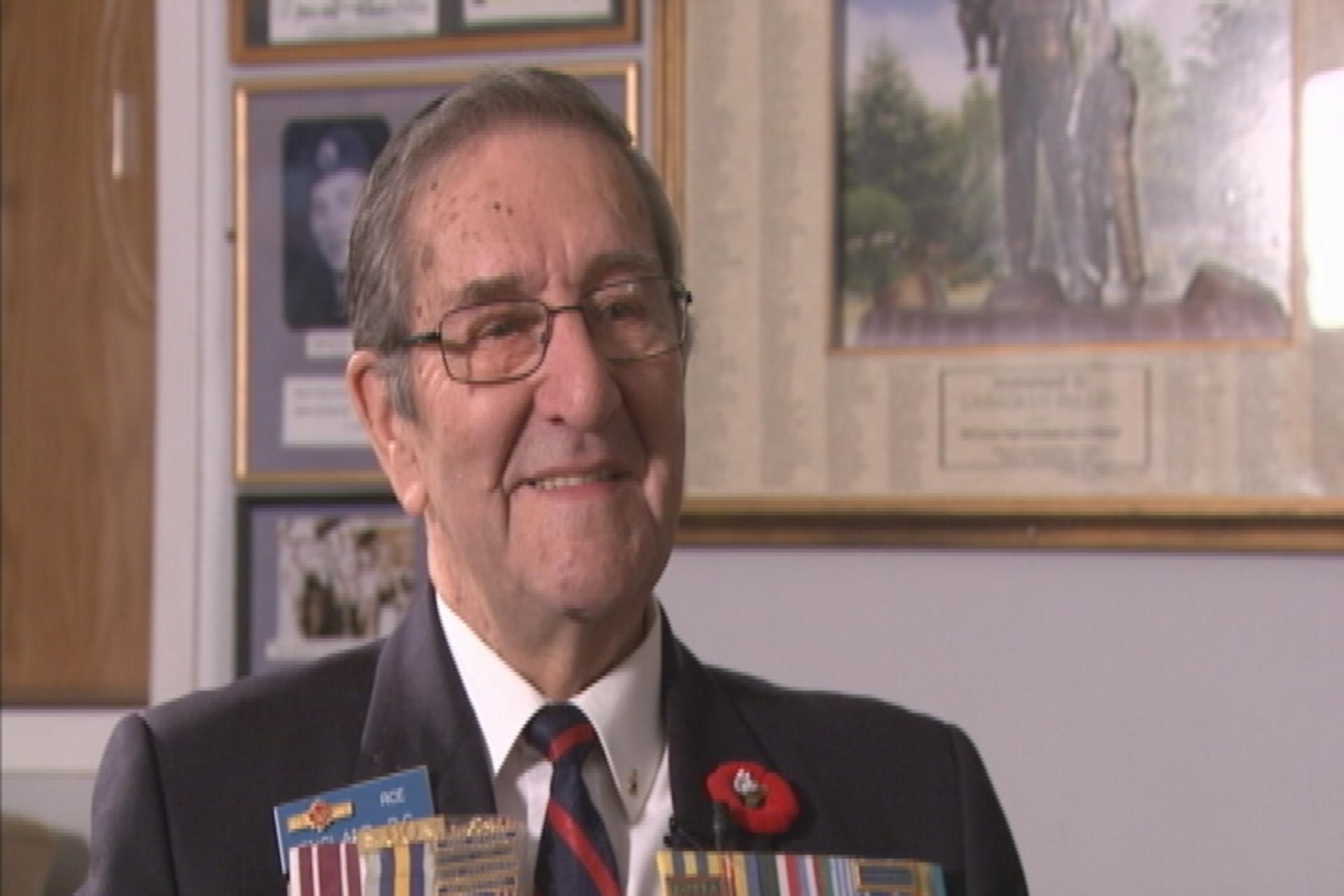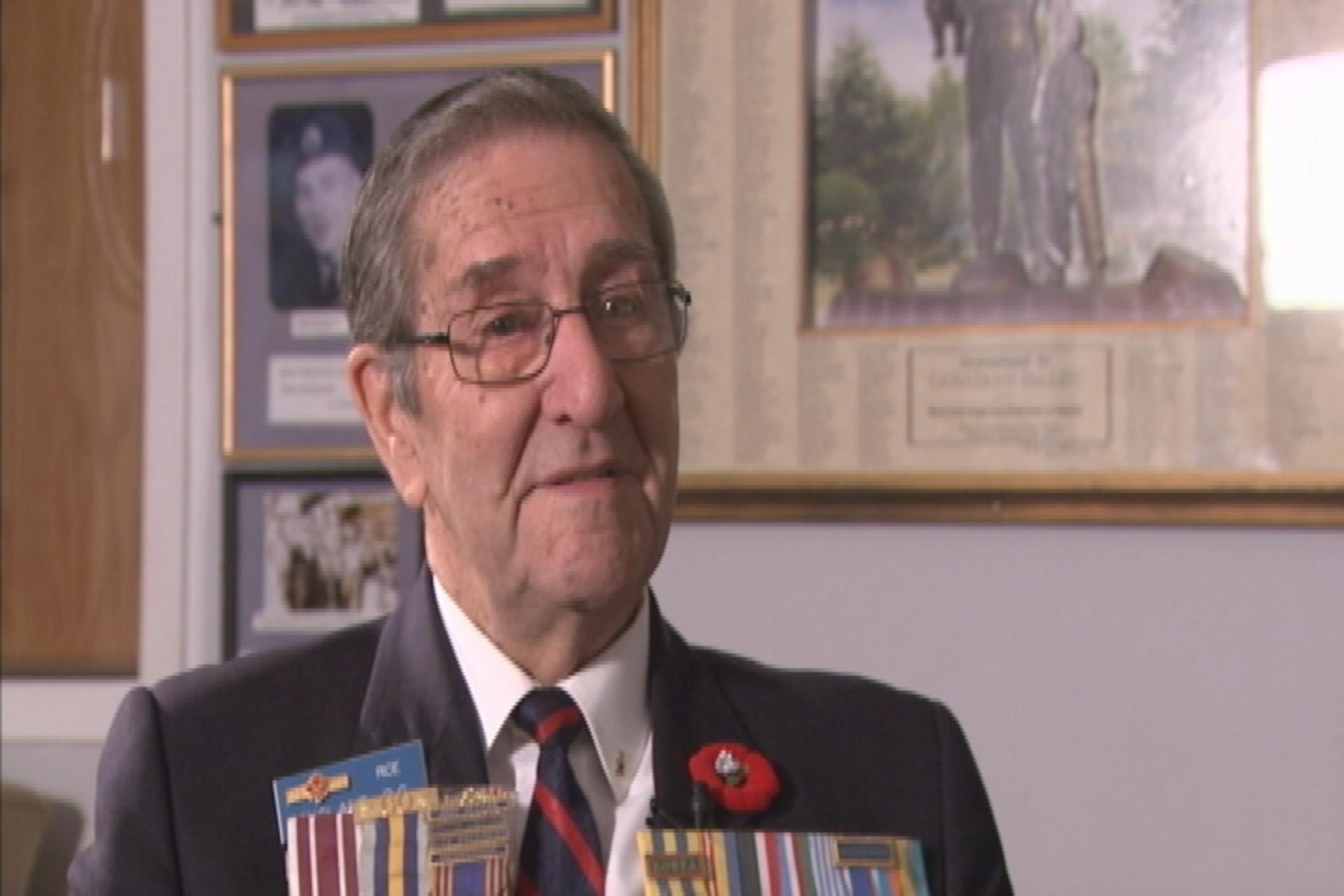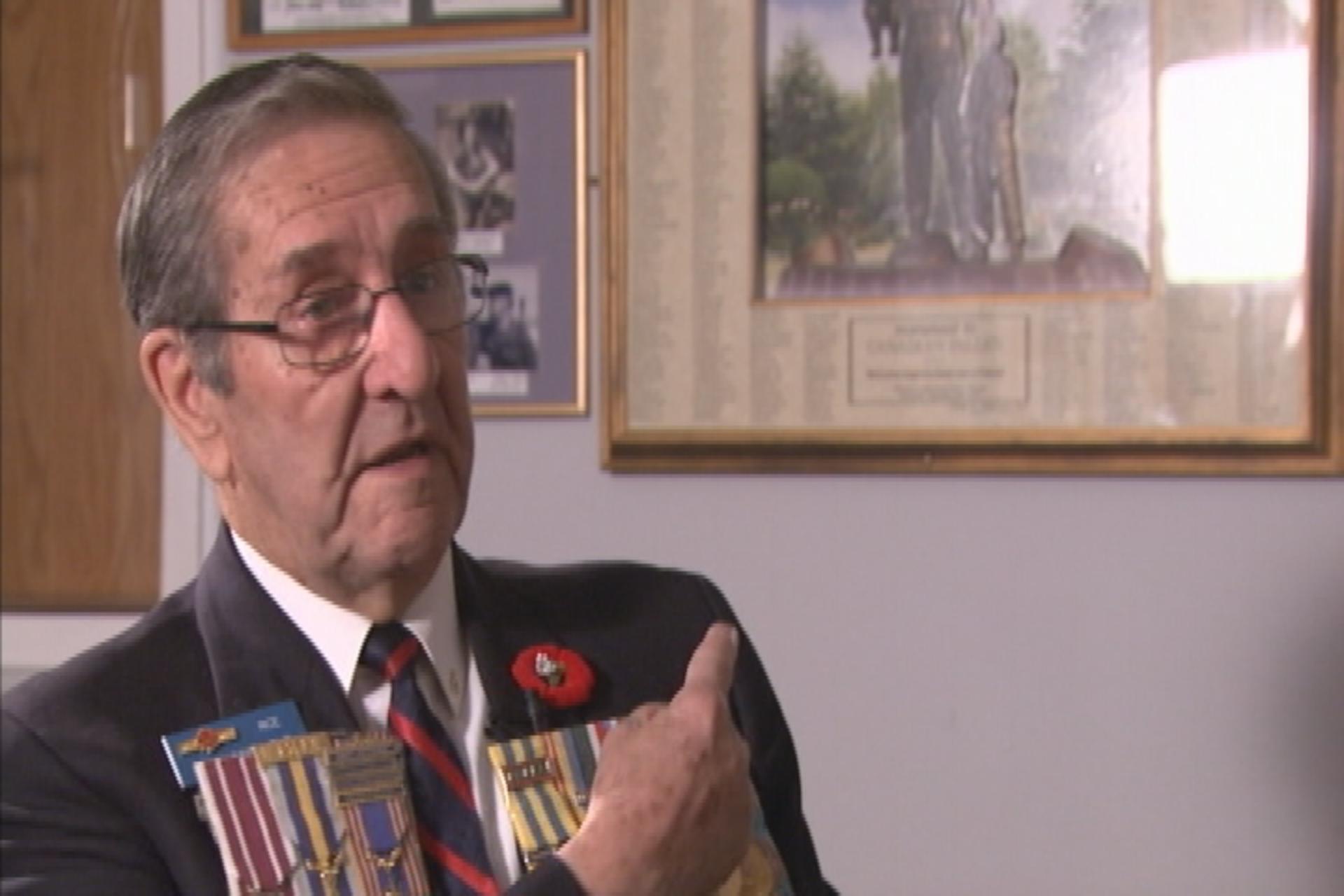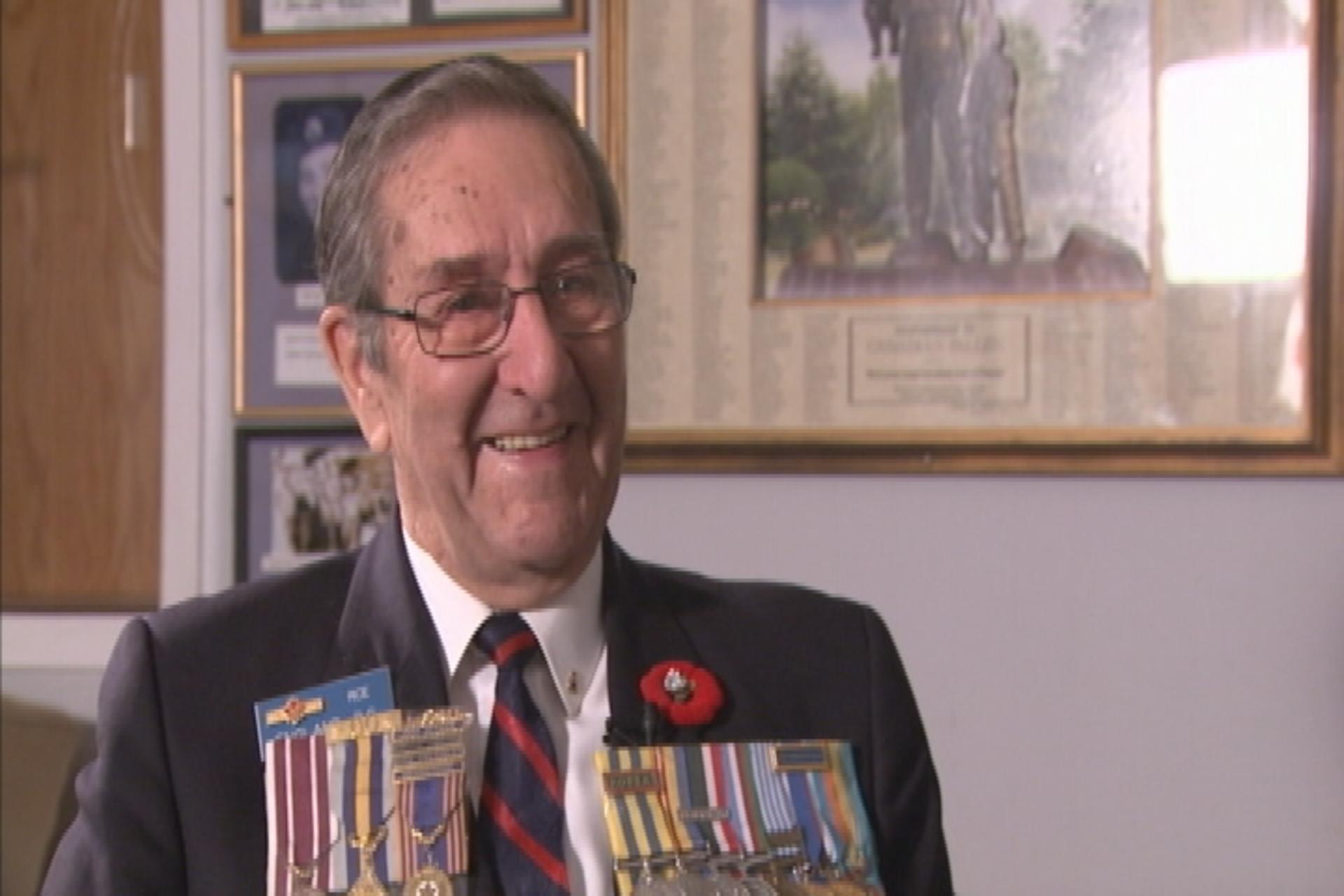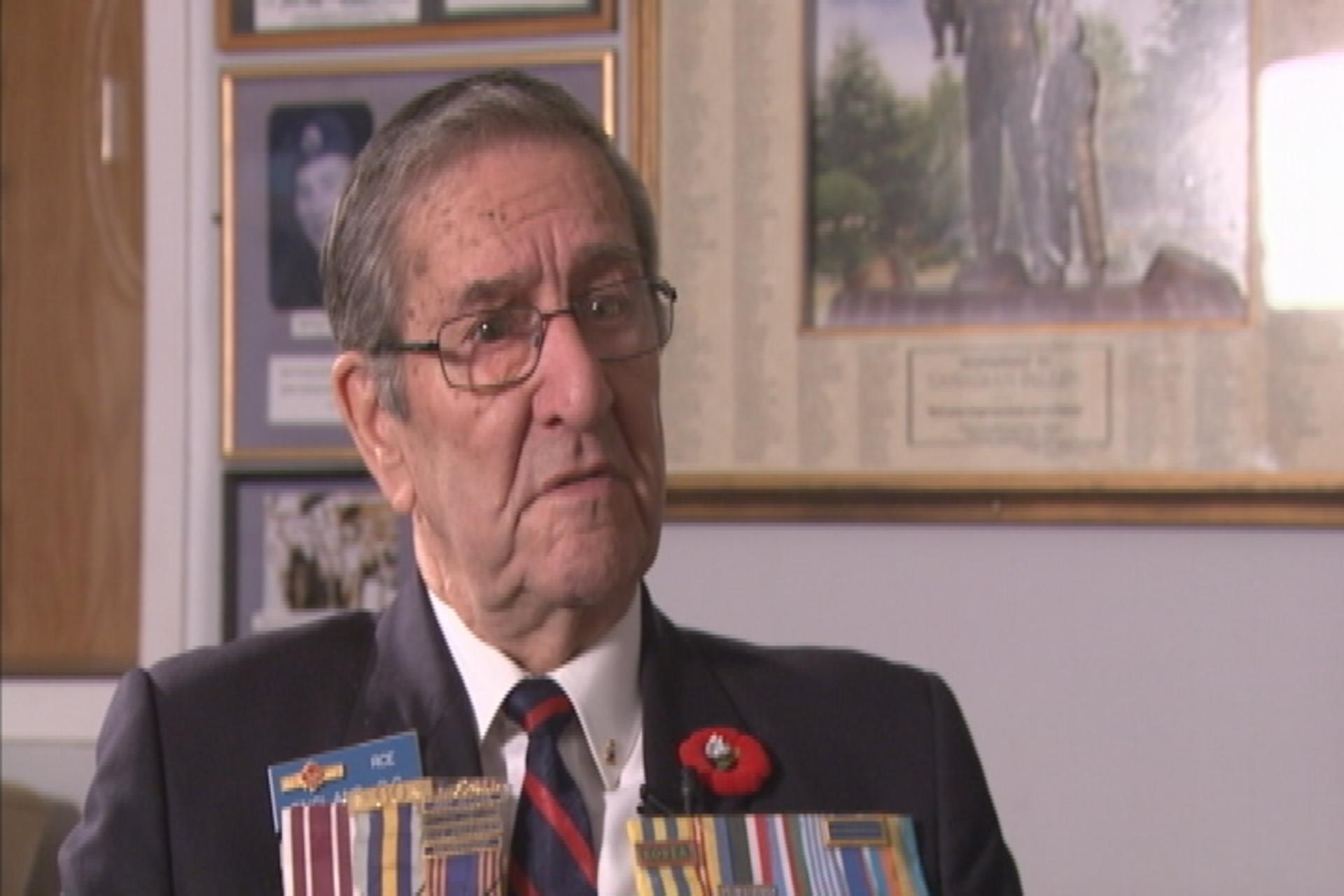For the last eighteen months the war was stagnant.
We were on one side, the Chinese and
that were on the other side and we
were told not to lose our positions,
stay there, don’t advance, protect your position,
that’s all so but they’d be charging
every night or every second night or whatever,
I don’t know why they did it because
there was nothing gained, you know.
And out in front of all the positions,
I was attached to the 3 RCR and
out in front there were always minefields.
In the night time the RCR’s would send out patrols,
out in no man’s land, that’s out between the
two and they had to go out through a minefield
and my job and my two other soldiers
was to clear a gap between the minefield
so I could pass back and forth.
That was my job in the night time to clear
that to make sure it was safe for them to
go back and forth because in the daytime
the Chinese would be pulling in mortar bombs and
everything in the daytime and
they would destroy the fences,
minefield fences and that and we had to
make sure it was clear so they wouldn’t
be going through the mines.
One night we go up in the bunkers about
nine o’clock and we wait for last light;
that would be when it got dark.
That’s when we go out because you
couldn’t go out in the daytime we were
right in view of the enemy in No Man’s Land.
So we wait until dark and then we go on out
and do our work to make sure that it is safe.
This night we were going up and we
were told to stand to!
We weren’t going up that night,
oh that’s great, you know.
That night was the most attack on C Company
than any of them in the whole three years.
I think it was twenty six Canadians killed,
twenty seven or twenty eight or something
wounded and eight or nine taken back, captured.
The next night we were detailed to clear the
minefield because there was a Canadian body
out in the minefield so we had to go out and
bring it back.
So we had to clear the minefield and
that had to be done in the night time
because, in darkness, pitch dark.
And that was something else
I’m telling you because we got out in
the darkness and we couldn’t take our weapons
with us because we had to use our
two hands and we couldn’t use a mine
detector because there was too much
metal in the ground so all we had to
use was our bayonets.
We on our hands and knees and progging
and we’d find a mine and we would
clear it with our hands,
feel around for booby traps or
the trip line and then take it up and
then look for another one, you know.
And then every now and then the RCR’s
would send up a flare that would
light up the whole valley.
Then we had to stop, go to ground, they call it,
just fall down and stay still until that,
maybe half a minute or so,
minute for that to go out then we’d start again and
get down on our hands and knees again and
start clearing and then another one might go up.
Took us about three weeks I suppose
to clear the minefield and bring the
body back, part of a body;
brought him back in a blanket.
We got that done and we went back and
we got a rest then for a while.



